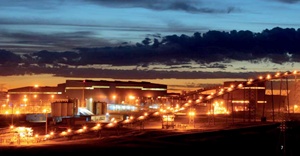Rio Tinto nears $6-bn deal with Mongolia on Oyu Tolgoi copper mine
07 Apr 2015
Ending almost a two-year standoff with Mongolia, Anglo-Australian miner Rio Tinto Group is close to striking a deal with the country's government over its stalled Oyu Tolgoi copper and gold project, according to latest media reports.

The mining giant's $6-billion plus underground mine development, which was stuck on differences with the government in 2013, is expected to proceed as the country's prime minister Saikhanbileg Chimed said that the two sides have reached agreement on crucial issues.
''The parties have finally come to mutual understanding on the two main subjects of dispute. The parties are now finalising their respective internal processes and will soon make an official announcement,'' Saikhanbileg further stated.
The decision will pave the way for the project's expired $4.2-billion financing by world's biggest banks to resume.
The minister said the agreement would boost foreign direct investment in the country, help appreciation of the weakening currency and improve the livelihoods of all Mongolians.
Oyu Tolgoi, located in the Southern Gobi desert, about 80km north of the Chinese border, is one of the world's largest copper-gold deposits and according to the International Monetary Fund's estimate, has the potential to generate a third of Mongolia's GDP, when it reaches full production in 2021.
Government of Mongolia owns 34 per cent interest in the project, while 66 per cent is held by Rio Tito's Canadian subsidiary Turquoise Hill Resources, of which Rio owns 51 per cent.
Oyu Tolgoi is expected to produce an average of 430,000 tonnes of copper and 425,000 ounces of gold per year, as well as by-product silver and molybdenum, over its estimated mine life of 50 years.
Oyu Tolgoi phase-1, which includes an open pit mine and a 100,000 tonnes per day concentrator, became operational in 2013. Rio and Turquoise have invested approximately $6.2 billion in the project.
The stalled underground section of the mine which is termed Oyu Tolgoi phase-2 contains up to 80 per cent of the value of the project.
The phase-2 work was halted in July 2013 on issues with the Mongolian government on profit sharing, cost overruns, and taxes.
Saikhanbileg, who took office in November 2014, had said that Mongolia, which changed the rules on investors, needed to take responsibility for much of the project's deadlock.
According to industry analysts, Saikhanbileg's positive attitude and the country's parliamentary speaker's view that the nation should not get involved in the Oyu Tolgoi project financing are sending conflicting messages.
Last week, Rio's chief executive, Walsh, who was on a visit to the mine to celebrate the shipping of millionth tonne of copper concentrate, told Bloomberg: ''We are down to few issues and these issues are deal-breaker type issues.''
Nevertheless, analysts believe that the foreign investment and other issues are likely to be resolved.
Mongolia's $12-billion economy has been traditionally dependent on agriculture and livestock. However, with the economic transformation in recent years driven by the exploitation of the country's vast mineral resources, the mining industry currently accounts for a fifth of the country's GDP.



















